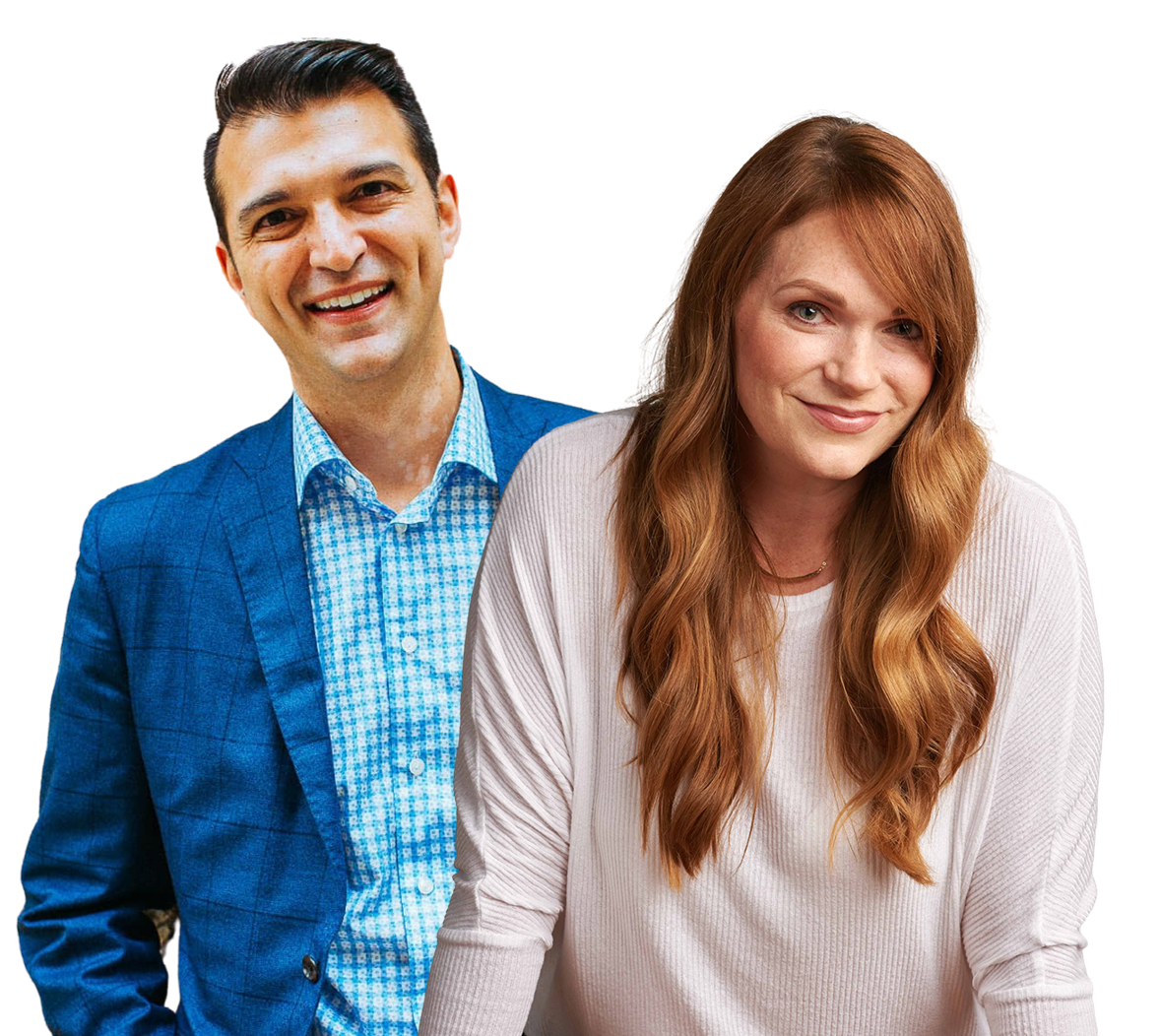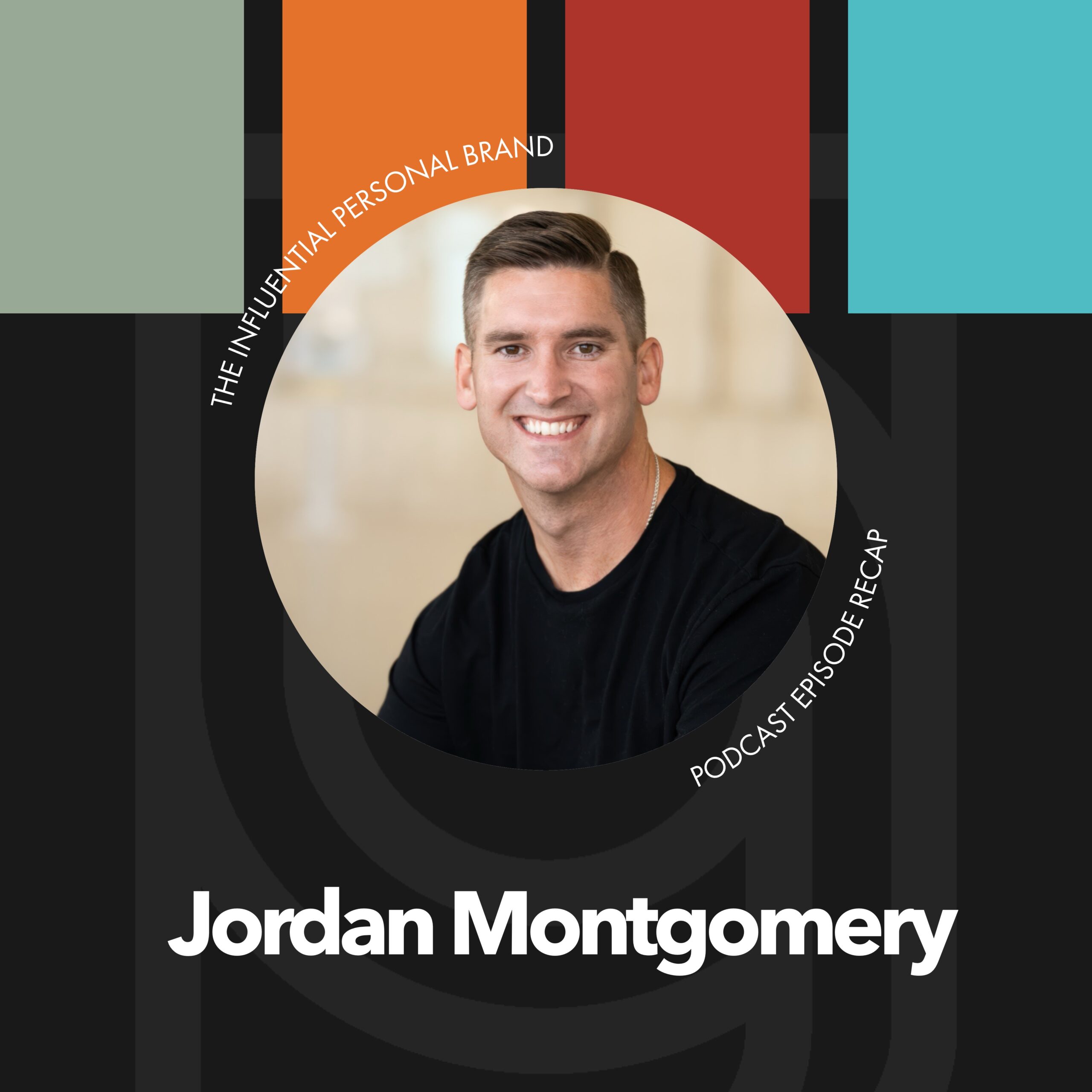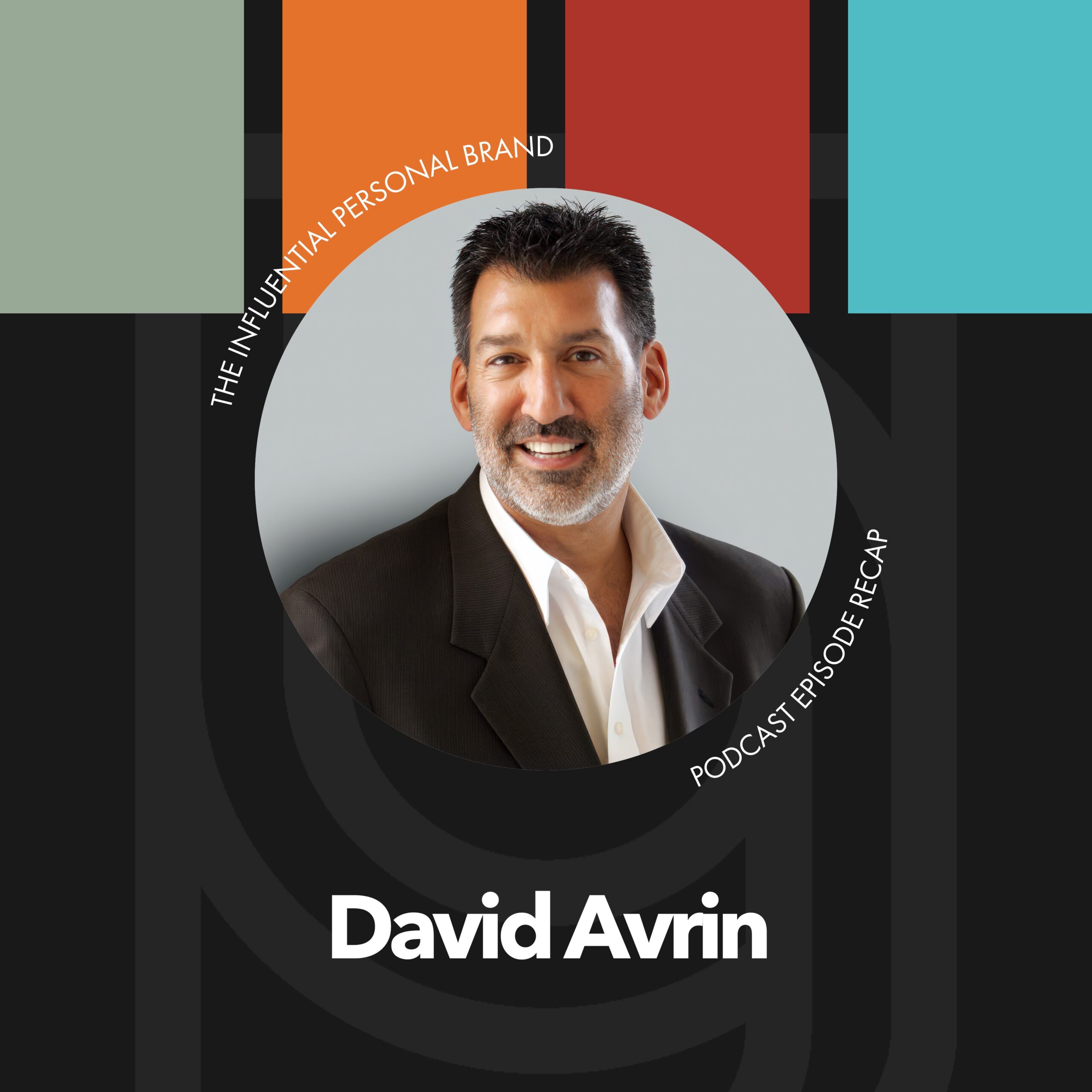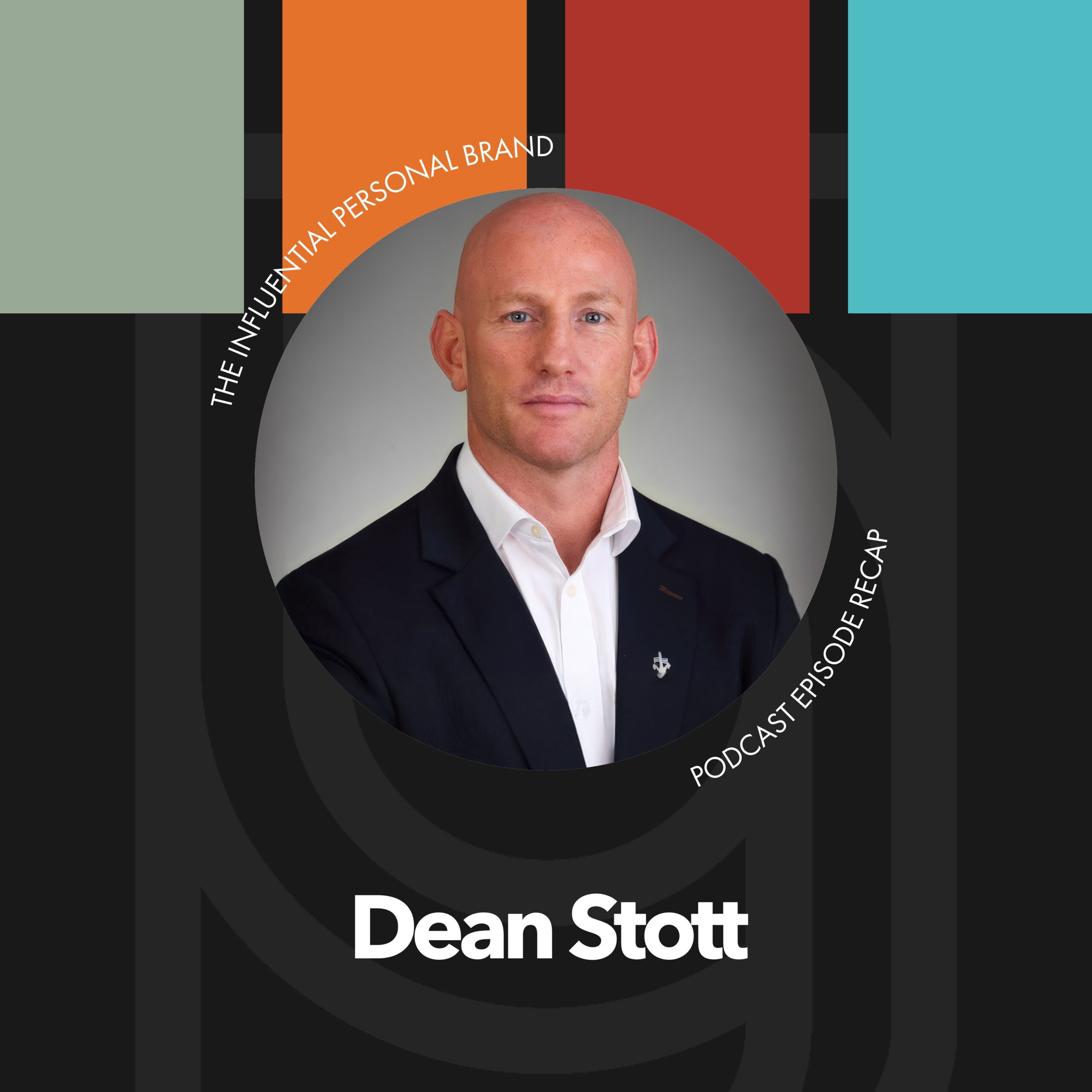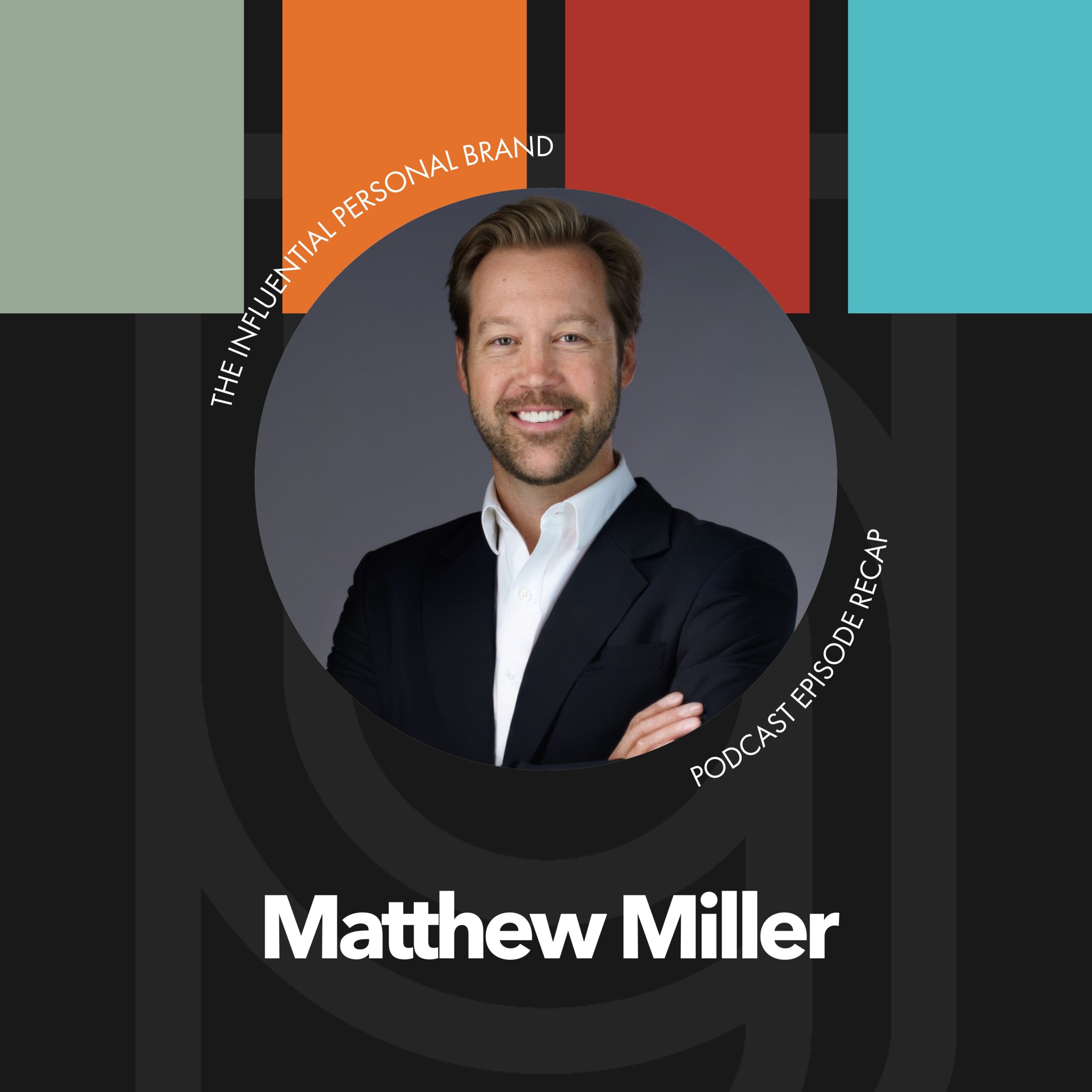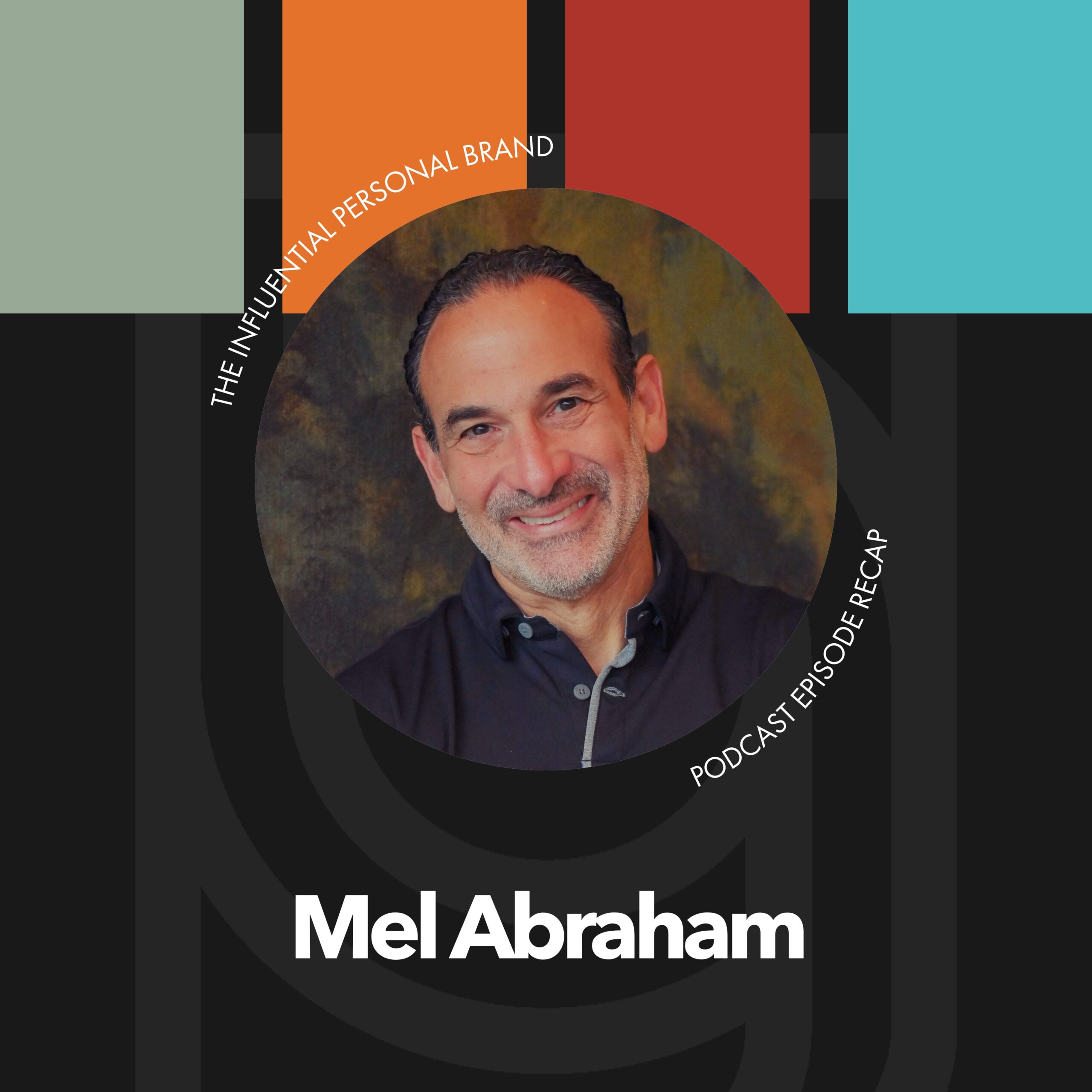Speaker 1 (00:03):
So another powerful interview, educational, informative, entertaining at least for me, listening to Eric Solomon talk about how to create great videos. And, you know, the, the first, I guess, highlight, or the first recap I wanna share with you, it, it wasn’t so much something specifically from Eric. I learned a, I learned a bunch, you know, from Eric. And I’ll talk about a couple of those, those key things in just a second. But I honestly want to share with you and just let you know this, because I feel like maybe you need to hear this, which is that for me personally, I have spent a large part of my career frustrated that I have to do all this stuff, like, frustrated that I have to deal with marketing and sales because it’s like I started my personal brand because I wanted to impact lives, right? Like, I wanted to help people.
Speaker 1 (01:03):
I wanted to dedicate my time. I wanted to dedicate my life to researching and finding answers and solving problems that made my life better. And then also transitioning or passing those, those lessons and those principles along to other people. I never wanted to learn about marketing. I didn’t wanna have to learn how to write copy. I didn’t wanna have to learn about video editing. I don’t wanna have to learn about websites. I don’t wanna have to learn about social media. I don’t wanna have to learn about podcasting equipment. I didn’t wanna have to learn about funnels and marketing automation, right? Like, all of these things that end up absorbing such an exorbitant amount of our time and our energy and our resources, for me, is frustrating and has been frustrating because those are not the things that I wanted to do. Like, those are not the reasons why I started building a personal brand in the first place.
Speaker 1 (02:05):
And yet, those are things I have to do, and I spend a lot of time doing, and we spend a lot of money on hiring people and getting stuff done and having to learn lessons like this one. And if, if that is frustrating to you or has ever been frustrating to you, I can relate with you on that, right? Marketing is frustrating. It’s, it’s like, to me, it, it’s, it’s been a necessary, almost like a necessary evil as in order to get the chance to do what I really wanna do, which is impact lives and help people and make a difference, and solve real problems and do meaningful work, and be an actual expert and, and study my craft. And so, for much of my life, I’ve been frustrated or much of my career, I’ve been frustrated that I’ve sort of held back from doing what I really wanna do at a bigger level because I’m not so great at marketing.
Speaker 1 (03:04):
And because I never had a passion for marketing, and that’s always been frustrating to me. Until really just a couple years ago, I had a huge epiphany. And, and this is an epiphany I want, I’m gonna share with you because I think, think there’s a chance that this might matter to you if you are dealing with some of that frustration and you’re going, look, I I, I, I’m a, I want to make art, right? Like, I wanna do my thing. I wanna work on my craft. I I wanna create art. And the epiphany that I had a few years ago was when I realized that marketing is art. Marketing is art. Marketing is part of your artistry. Marketing is part of your craft. Marketing is is part of how you earn the right for your work to be heard and to be seen, and to make an impact.
Speaker 1 (04:00):
It’s not just enough to create the work. I have to do the work of telling people about the work, which is marketing. And that is something that has, has taken me a long time to get to. But the moment you have that realization that you go, oh, marketing is art, marketing is part of my artistry, marketing is part of my craft. Marketing is as necessary a part of the art as creating the art itself. That my job, my responsibility, my privilege, my obligation my opportunity as the artist in creating the art is also to do the work of marketing it and telling people and about it and sharing it with people. Marketing is art. And so these are necessary conversations to have. These are necessary things to learn. These are necessary skill sets to develop or to at least be able to become competent at hiring other people to do for you.
Speaker 1 (05:07):
And I know it’s hard, and I know it’s, you know, probably not the primary thing. And so much of what we’re, so much of what we teach people and help people with at Brand Builders Group is templates and toolkits and, and systems and strategies and techniques and frameworks and, and charts and systems to help automate and streamline as much of the marketing elements so that you can really focus your energy in, in the area of your passion, which is whatever your artistry is and whatever your craft is. So, I don’t want you to be discouraged. I want you to be encouraged. And I, I, I hope for you to have that same realization that I had because it made a big difference for me. It made a big difference because instead of fighting all of these things and being annoyed that have to do them, and being resistant to the, to, to social media and being resistant to copywriting and graphic design and websites and marketing automation and paid traffic acquisition and making sales calls and building, you know, pres getts and having to hire people and vendors and like all of the necessary elements that are, are part of the work, instead of being resistant to that, I have been able to finally turn the corner and embrace that.
Speaker 1 (06:22):
And I think that that’s been a huge part of the success of Brand Builders Group is because I’ve said, oh, these, this is where we can create so many tools and so many processes and systems and checklists and templates to help our clients with, with these parts. You know, this part of the work and, and this is work. And the other thing, the other thing that I would say, so, so one of, you know, mentality wise and getting your mindset around creating great video, which is really what that interview is about. I’m just sort of rounding it out here to some of these other necessary things you have to do as part of being a mission driven messenger and getting your message out is the other way to. So, so one way to look at it is that marketing is art, and, and all of these things are necessary part of your art.
Speaker 1 (07:08):
You know, part of the art is telling people that the art exists, and that’s, that’s a noble and important part of the artistry, otherwise no one ever gets to experience. And so that art never actually fulfills its purpose. The other part of it that I would say, which is also something that I’ve had to coach myself on and, and slap myself in the face every once in a while and go like, yeah, there’s parts of this you don’t wanna do. Of course there are, there’s parts of any business that you don’t wanna do. There’s parts of anything it takes to be successful. I e my first book, take The Stairs, right? The whole premise of that book is realizing that successful people are willing to do the things they, they, they know they need to do, and they know they should do, even when they don’t feel like doing them, because they realize that they’re a necessary part of achieving the goals that they have in life.
Speaker 1 (08:02):
People who are successful take the stairs. They do the things that other people aren’t willing to do. They do the things that they don’t like to do because they know they must be done in order to, and as part of a necessary stepping stone to the things that we want to do, and to achieving the things, the goals that we have for our life, and, and to, for the, for the purpose of living our purpose, we must do things we don’t wanna do. So I, I wanted to give you that context. That was sort of my first highlight, my first takeaway, my first aha, which wasn’t necessarily so much from something Eric said, but just kind of having this almost out of body experience have relearning principles that I’ve had to learn in the past and go like, yeah, normally I wouldn’t care about these things because they’re, they’re, they’re like ancillary to what my main focus is,
Speaker 2 (08:54):
Which is changing lives. But over time, I’ve really developed a, a love and a passion for this kind of stuff. And if you didn’t listen to that interview with Eric, I mean, you gotta go listen to it. I mean, hearing him talk about how, you know, his art is editing video, I mean video production, not editing video, but like producing a video a finished video product. And it’s amazing and it, it is transformative. We’ve also interviewed our one of the things we did for our members is we interviewed our creative director. She’s gonna be on the podcast as well talking about visual identity and graphic design, which are all things that, you know, to me was like, ah, I don’t wanna learn this. This isn’t really my thing. And it’s like, no, this is a part of it. And it’s, it’s a beautiful part of it, and it’s a necessary part.
Speaker 2 (09:41):
So marketing is art, and you also, there’s gonna be things that you just have to do that you don’t feel like doing. So that’s the first thing. The second thing on the topic specifically of what makes great video, and I, for me, the most powerful moment, or the most powerful concept in, in the entire interview with Eric was when he said, focus on feelings, not on facts. Focus on feelings, not on facts. When you’re producing a video, when you’re creating a video piece for whatever it is, whether it’s Instagram or you know, this, that, or whatever, focus on feelings and not on facts. In other words, the, the, the purpose of the video isn’t to convey information. The purpose of the video is to convey a motion to, to convey a feeling, to, to convey this transference of this energy, of what it’s like to do business with you, to hire you or your team or your company.
Speaker 2 (10:45):
That’s what video does in such a powerful way. And I would say that’s also true about great copywriting, right? So those of you that are, are members of ours, you know, that we teach a very specific framework that again, was life changing for us once we figured this out. It’s called the 15 piece of Copywriting. And it is how to come up with the exact words that you need to put on a page in order to get someone to pull out their credit card and buy something from you. Well, the whole concept of the 15 piece is just a structure to help move the audience emotionally, to move the reader emotionally. That’s also what makes great photography. If you go back and you listen to the interview that we did with Nick Ankin, who’s celebrity photographer of like Taylor Swift and Justin Bieber and the Pope and all these people, right?
Speaker 2 (11:35):
And also the interview that we did with Lewis Howes where we were talking about photography, and it’s, it’s great photography captures a feeling. It’s a state, it’s an emotion, it’s an energy. That’s what great copywriting does. That’s what great graphic design does. That’s what great video editing does. And so it was interesting, you know, for me,I’m tying back and some of those episodes are pretty old. Like Lewis was one of the very first people we interviewed on this podcast. So it’s been a couple years. UI’ve been on his show six or seven times,in the last couple years, but he’s only been on this show once. And,and then Nick Onken, who’s also Lewis’s photographer and also has become mine and AJ’s,you know, primary photographer for major photo shoots is,you know, that was old older too, but it’s the same.
Speaker 2 (12:24):
You’ll hear the same thing when our creative director comes on. And she’s talking about how we do visual identity, or Nick talking about photography, Nick or Lewis talking about photography is you know, us teaching the 15 P’s, us teaching the presentation, the one of our, one of our official courses for our members is called World Class Presentation Craft. And we teach all of these mastery level stage mechanics for how to develop characters and use your voice and, and write stories and create content and, and lay out visuals and create pillar points. All of these techniques use humor, the psychology of laughter, which are all focused on one thing, moving the audience emotionally, move the audience emotionally. They need to have an emotional reaction. They need to have an emotional response. And that’s what Eric was saying about what makes great video, right?
Speaker 2 (13:20):
And I, I have to think of another great example of this. You know, somebody who does video really well is Eric Thomas. So Eric Thomas, et the hip hop preacher, who is another one of our brand builders group clients. And we just, we just ran his book launch for him. And we just hit the New York Times bestseller list a few weeks ago, which was fantastic. But AJ and I had been fans of Eric’s for years before he ever became a client. And he, you know, has over 5 million followers and he’s got, you know, hundreds of millions of video views because when you watch Eric on video, it moves you emotionally, right? It’s, it’s, it’s not even so much what he’s saying as how he’s saying it. You have this like, this, this physiological response, right? That’s what makes a great speaker. Ed Millet is also that way, another one of our clients, right?
Speaker 2 (14:14):
And Ed, when Ed’s on stage, he, he, as a speaker, he creates this, you’re listening. You have a physiological response. Your heart rate changes based on the way he’s using his voice. And those are things that we teach, how you’re using your voice, how you’re using humor, how you’re telling stories, the structure of things, all these different things. And that’s what a great video should do. And, and I think the part of why I’m harping on this is to go look, if you don’t know anything else about video, all you have to know is that when somebody watches it, does it move them emotionally? And does it create
Speaker 1 (14:51):
The energy in the viewer that you want that viewer to experience? And is that the energy? Does the video portray the energy of your brand? Does your video portray the energy of you as the messenger? And, and again, I just can’t help but talk about this concept and apply it also to, does your copywriting do that? Does your, does your photography do that? Does your your graphic design do that? Does your speech do that? Like, these are all aspects of marketing and personal branding, which have to just map back and, and tie directly to creating a specific energy or motion for your, for your viewer and for your audience. And that’s just so powerful. My third takeaway, and this is something that I truly have learned from Eric that I’d never heard before, that has really been a game changer for our business, is leveraging the power of the interview for leverage, the power of the interview format for video.
Speaker 1 (15:54):
Now, not just for like podcast interviews, you know, we all see people do interviews for that, but he was saying like, rather than trying to write a script for a marketing video for your company, interview your clients, or hire somebody like Eric to to interview them for you and, and interview them on video and ask questions in a way that’s gonna solicit or elicit the responses from them about what it’s like to do business with you. And when you get your actual customers just talking, then you’re able to take that and, and that becomes, becomes the gold. Now, a lot of times, you, you know, so that’s one thing is, is interviewing your customers. But the other thing is interview yourself or have somebody interview you. So, like, rather than trying to write the perfect script of, what am I gonna say on this promotional?
Speaker 1 (16:48):
Let’s say it’s a promotional video. What you would do is you just have somebody interview you in a way that you can just sort of like unload on them, like emotionally, just like sort of unload or pop off on like this rant about why you do what you do and who you do it for, and why did you start this brand or this company, and what does it mean to you and why is it important? And, and who, who is it for? And just creating that, that, that eruption of emotion and sort of puking that out on camera, and then being able to go back and post production and edit that, that will take a lot of pressure off you. And, and Eric does it brilliantly. The very first project he ever did for us was he created a testimonial video, which is still on our
[email protected]. It’s so good. And AJ and I aren’t even in the video, like no one, there’s a couple of our strategists that are in the video, but it’s mostly our customers
Speaker 2 (17:49):
Talking about what it is like to do business with us. And that’s still on the homepage of brand builders group.com. Or if you go to free brand call.com/podcast, it’ll take you right to it. And you can see the video of our customers talking about what it’s been like to, to work with us and do business with us. And so interviewing is super powerful, but we also, it’s also a great way for you to create content. Okay? So I’ve been talking about in the context of like promotional videos, like you know, a great example is with the speaker demo video. And, and Eric talks about these he said too, but I’m gonna say the three types of video that every personal brand needs is you need a personal brand or like a bio video, which is a short bio about you, which, which by the way if you go to my Instagram handle, which is at Rory Vaden I have pinned to the top of my Instagram my new personal brand little bio video that Eric produced for me.
Speaker 2 (18:46):
And you can just go look at it. I’ve got it pinned to the top. So it will always be up there no matter when you listen to this. And it’s a 62nd bio video. And even in that bio video you’ll see there’s, there’s customer testimonials from Lewis Howes and Eric Thomas and Ed Mylett in even that little 62nd video. I’ve got three little miniature testimonials, and the whole video is really testimonials from our clients and our friends introducing me on their shows. It’s, you know, Eric put that together, he did a great job. So you can go look at that as an example of, of what a 62nd personal brand video looks like, which is also like a customer testimonial. And so anyways, you need three types of videos. You need a personal brand or like a bio video. You need customer testimonial videos like, or case study videos as he called them.
Speaker 2 (19:29):
And then you need a speaker demo video. I’ve got two brand new speaker demos that Eric has worked on for me, but we’re not releasing them live yet, I don’t think until we release. We’re updating rory vaden.com and so that’ll be all part of it. So when, when that happens, I’ll make an announcement and you can go check out the new rory vaden.com. But the, so the interview format for promotional video is super powerful, but the interview format for a speaker demo video is especially a, a powerful tip because when you’re editing a speaker demo video, you have footage of you speaking on all these different stages and all these events, but it, they, you’re, they often don’t perfectly fit a through line of exactly the story you want to tell when you’re trying to sell yourself as a speaker. Cuz they’re, those are videos of you doing what you actually do.
Speaker 2 (20:22):
Those are not videos of you selling what you actually do. And so the way to fit, the way to fill in the, the blanks there and the backbone of their whole demo video can be an interview with you. And so somebody can interview you on camera and they can interview you. And, and the first time we did it with Eric, he did it over zoom, like straight up just high quality, you know, as high quality zoom would, would put out, interviewed us. And that become the baseline, like for sort of like, when I say the through line, it’s, it’s the thread through the whole video and then you’re interspersing customer testimonial clips and, you know, media clips and you on stage and all the things that go into, into into a full demo video. But you become the through line in an interview direct to camera format.
Speaker 2 (21:09):
Or typically you’re not talking right at the camera, you’re typically like looking off the, the lens just a little bit. And that’s super powerful. But the other place that we’re seeing interview formats show up now for our clients is when you need to create content videos. So for example, some of our clients struggle to build their first like webinar and they don’t know, you know, they’ll, they’ll be like, ah, you know, they struggle to get the slides together, or they don’t know the right format, or they’re worried about what they’re gonna say, or they just get nervous talking directly to the camera. And so one of the things we can do and we can do for them is we can interview them and basically the interview becomes the webinar. And so rather than a, rather than a recording of like a talking head over some slides, it becomes an actual conversation.
Speaker 2 (21:58):
And so we’ve done it, we’ve helped do clients do that for webinars. A lot of people will write books that way. They’ll have somebody interview them, record the whole interview. It could take, you know, a few days even record the whole interview, get it transcribed, and then send it to an editor and have them turn that into a book. We’ve done, we’ve done that way. We have done it for book launch bonuses. In fact, I mentioned Eric Thomas a couple times here. This is what we did for Eric Thomas did this, I did this for Matthew West also. So one of our clients is Matthew West. He’s a one of my favorite Christian musicians of all times a 25 Grammy nominees and, or sorry, five Grammy, five time Grammy nominated artist and 25 number one singles, Matthew West. And anyways, when we did his book launch, I interviewed Matthew about his book and that interview became the bonus content for people who pre-ordered his book.
Speaker 2 (22:54):
And also at the end of that interview, we, we, we sold the upgrade the bulk packages. That’s all stuff we teach in bestseller launch plan, which is one of our phase three curriculums on, on how to do these, these book launches. By the way, we just had our 11th client, our 11th client this last week, hit the Wall Street Journal bestseller list, the 11th time. We’ve had one of our clients hit the New York Times or Wall Street Journal or USA Today bestseller list just in the last couple years. Like our book launching stuff is, is on lockdown, but one of the things we do is we create these bonuses to get people to pre-order in one of the bonuses is this, this reverse interview or this masterclass where it’s like, you don’t have to, you don’t have to even think about or plan for the content.
Speaker 2 (23:39):
You just get someone to interview you and that becomes the bonus. And then we do this like, you know, kind of sales pitch at the end to get people to upgrade and buy and bulk. But anyways, the interview format and then one of our implementation partners for social media is now doing this for our clients. When our clients struggle to create content every week, like, you know, we teach this content diamond process, which I’ve taught here before you, if you go to rory vaden blog dot com and you search for content diamond, you know, I, I’ve taught the whole thing and that’s a, that’s, we’ve made that available for free. It’s an amazing training on how we do social media. But, and it starts with a, like a source seven minute video of you talking to camera. Well, some of our clients struggle with that.
Speaker 2 (24:20):
And so one of our implementation partners is so brilliant, starts started interviewing clients and just giving them like three or five questions every week to answer. And the interview format becomes the source content for the entire content diamond. And it fills their whole social media calendar for the week. And they don’t, they don’t have to like, prepare what they’re gonna say. They just answer these questions and then they cut, they, they edit together the interview as the source content. I mean, it’s really, really great. So you maybe haven’t thought about the power of the interview format in all of these different ways. And that was, you know, really eye opening when I first, I first met Eric. And, and now he’s taken us through his process several times. So there you have it. Some of my big highlights and takeaways, hopefully those are inspiring and powerful for you too. And just remembering that you know, marketing is art. Part of your artistry is letting people know that your art exists. And what is art other than a piece of work that moves people emotionally. So when you’re creating art, create something, create somebody of work that moves people emotionally, that’s what makes an artist.
Speaker 2 (25:40):
Thanks for being here. Make sure you come back share this episode with somebody you know who needs to learn about video editing and marketing as artistry. Would love it if you leave a review and rate us on iTunes and just, you know, share this, share this with somebody you think it would be useful for. Have a great week everyone. We’ll catch you next time on the Influential Personal Brand podcast.



